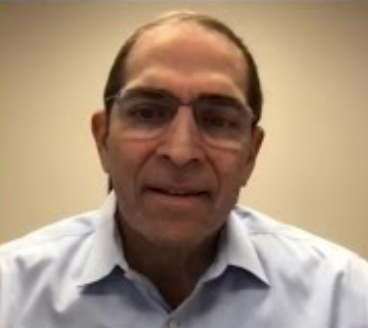The University of Kansas Health System
The number of COVID patients at The University of Kansas Health System is steady today. 62 people with the active virus are being treated, down from 63 yesterday. Only 14 of those active patients are vaccinated, and all of them have underlying conditions such as solid organ transplants, immunosuppression, cancer, lung and heart disease and diabetes. They range in age from 19 to 99 with the average age in the mid 50’s. 21 of the active patients are in the ICU, the same as yesterday. 14 patients are on ventilators, down from 16 yesterday. 23 other patients are still hospitalized because of COVID but are out of the acute infection phase, up from 22 yesterday. That’s a total of 85 patients, the same as yesterday. HaysMed has 10 total patients, up from nine yesterday.
On today’s Morning Medical Update, we heard more about the risk to immune compromised patients, plus when and how to get a booster vaccine. Joining the panel were Peter Jouras who is a bone marrow recipient, and Dr. Joseph McGuirk, Division Director, Hematologic Malignancies and Cellular Therapeutics and Medical Director, Blood and Marrow Transplant.

Dr. McGuirk discussed new CDC guidelines allowing a booster shot for immunocompromised patients. He says it really should not be considered a booster but a primary attempt at protecting that patient population, and he described the various conditions that make someone eligible. He warns that even a third dose might not be adequate for some of these patients, and they need to continue wearing a mask and avoiding crowds, something they did long before COVID. To show the level of vaccine resistance, he recounted what he calls a “deeply troubling” story of a 32-year-old nurse who contracted leukemia a year and a half ago. She underwent treatment and recovered, after almost dying in the ICU. She then had a bone marrow transplant and is in complete remission. She has been vaccinated, but her husband did not believe in the vaccine for himself or their four children. Now because of her low immunity, she’s now got COVID pneumonia and her husband is very ill with the virus. In Dr. McGuirk’s words, “It’s completely unacceptable and I’ll just be frank, it’s irresponsible.” He explained his staff is actively contacting patients to coordinate the third shot and suggests any immunocompromised patient get one at a pharmacy, even if they have not heard from their doctor. He implores everyone to get vaccinated and wear a mask, especially in a grocery store, both for themselves and those around them who may be immunocompromised.
Peter Jouras is a bone marrow transplant recipient and Dr. McGuirk’s patient. He has no immunity, even with two doses of the COVID vaccine, but will be getting his third shot next week, in the hopes of mounting some response. He has three children in the house between 9 and 13 who spent last year doing online classes from home. This year they are all going back to the classrooms. He’s glad his children are in the Shawnee Mission School District, which requires masks, which should help, but Peter worries about what they might bring home. Right now, all of the kids hit the shower as soon as they come home, and their clothes go straight to the laundry. He says they don’t wear masks in the house, but thinks if the Delta variant continues to spread, he may become more isolated into a bedroom. He says very bluntly, “If we all tell the truth, it’s not vaccine that’s the problem. It’s not Delta that’s the problem. It’s not COVID that’s the problem. It’s disinformation that’s the problem.” He begs everyone to get vaccinated, saying, “Each day is very precious. And so everybody who gets vaccinated, basically I think about that adding one day to my life. And I’m very thankful for every single person I see who gets vaccinated.”
Dana Hawkinson, MD, medical director of Infection Prevention and Control at The University of Kansas Health System, thinks temperature screenings at building entrances offer little benefit for the amount of disease they detect because people can spread the virus without having any symptoms. The exception is healthcare settings, which still required them under federal regulations. He also discussed word that the Biden administration may announce additional dosing for the general population. In response to a question about how much our body can take of “all these preservatives and things” in the vaccine, he says there are no preservatives of any kind in them. He also says any boosters will not need to have their ingredients “tweaked” to cover the new variants as they still offer good protection. He adds that no one vaccine is better than another in offering protection for the virus. To those who want to believe the vaccine doesn’t work because a third dose may be needed, he reminds us we already have additional dosing for things like the flu and tetanus.



